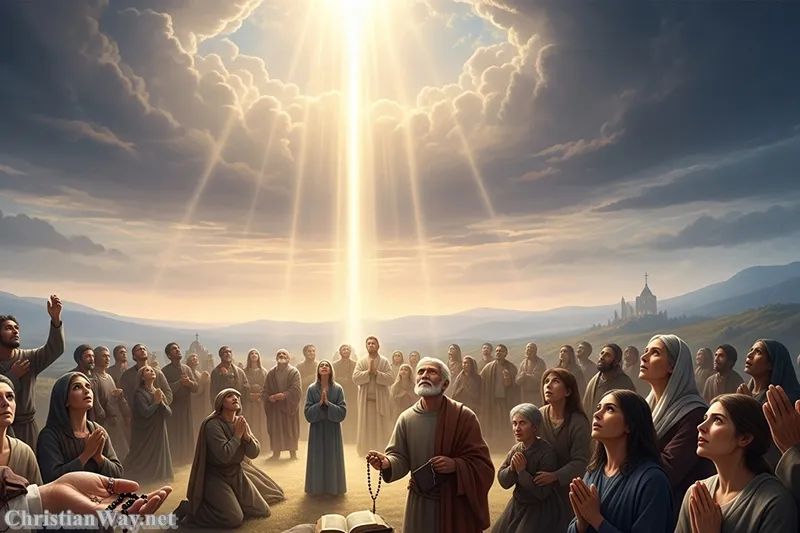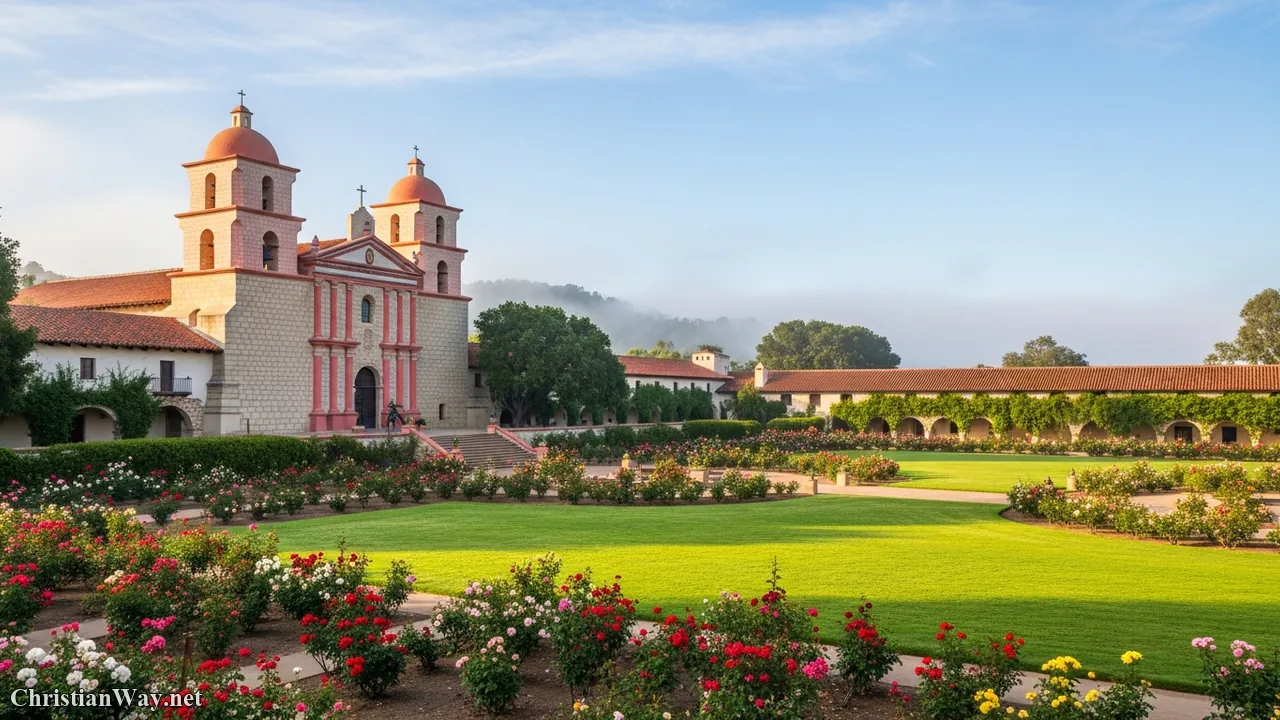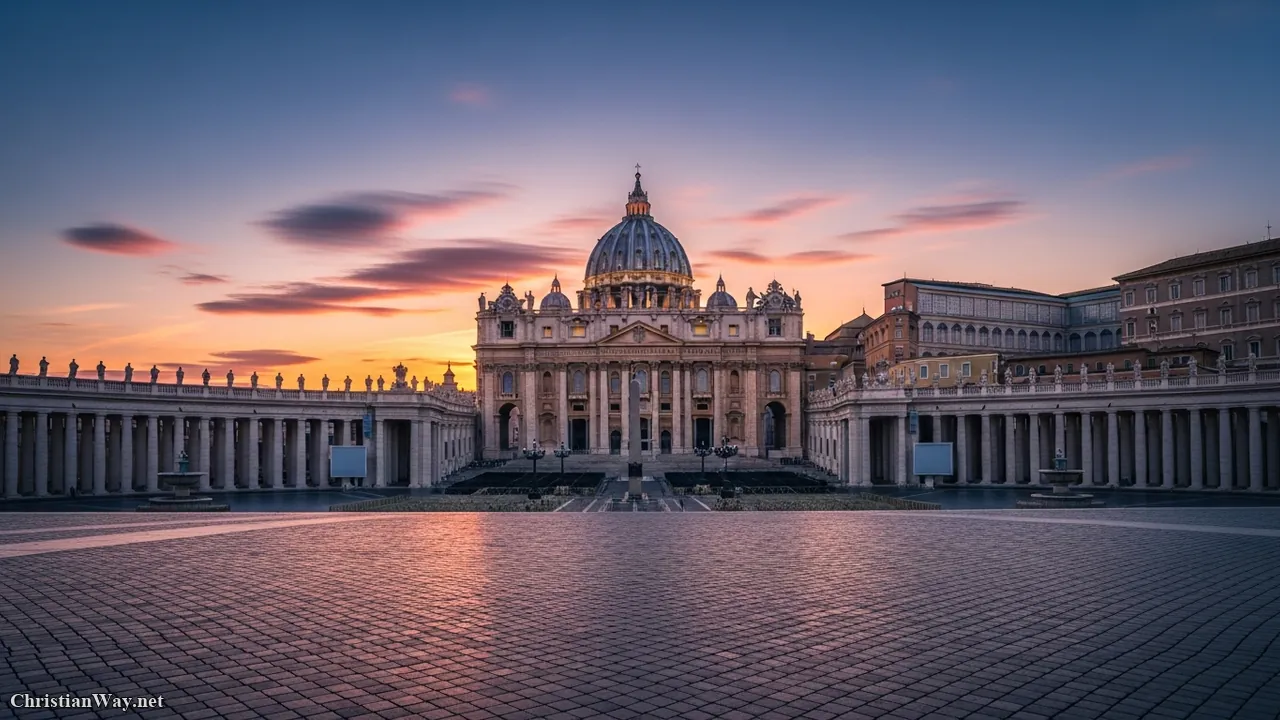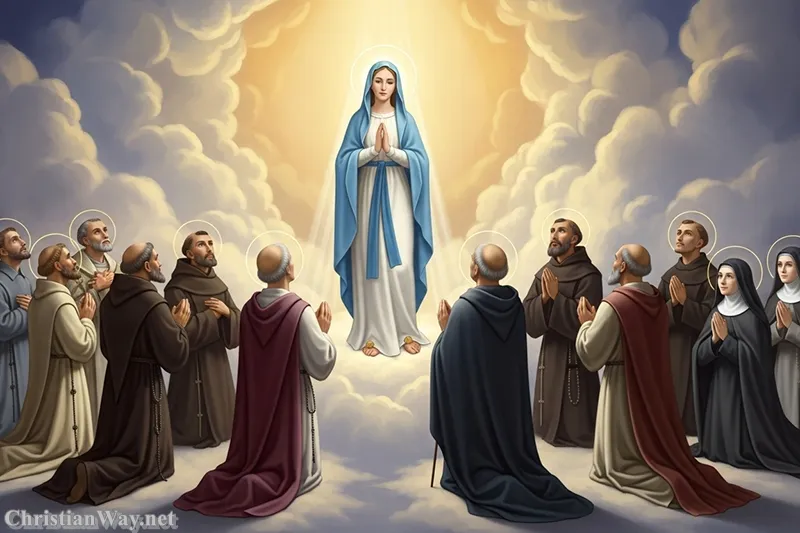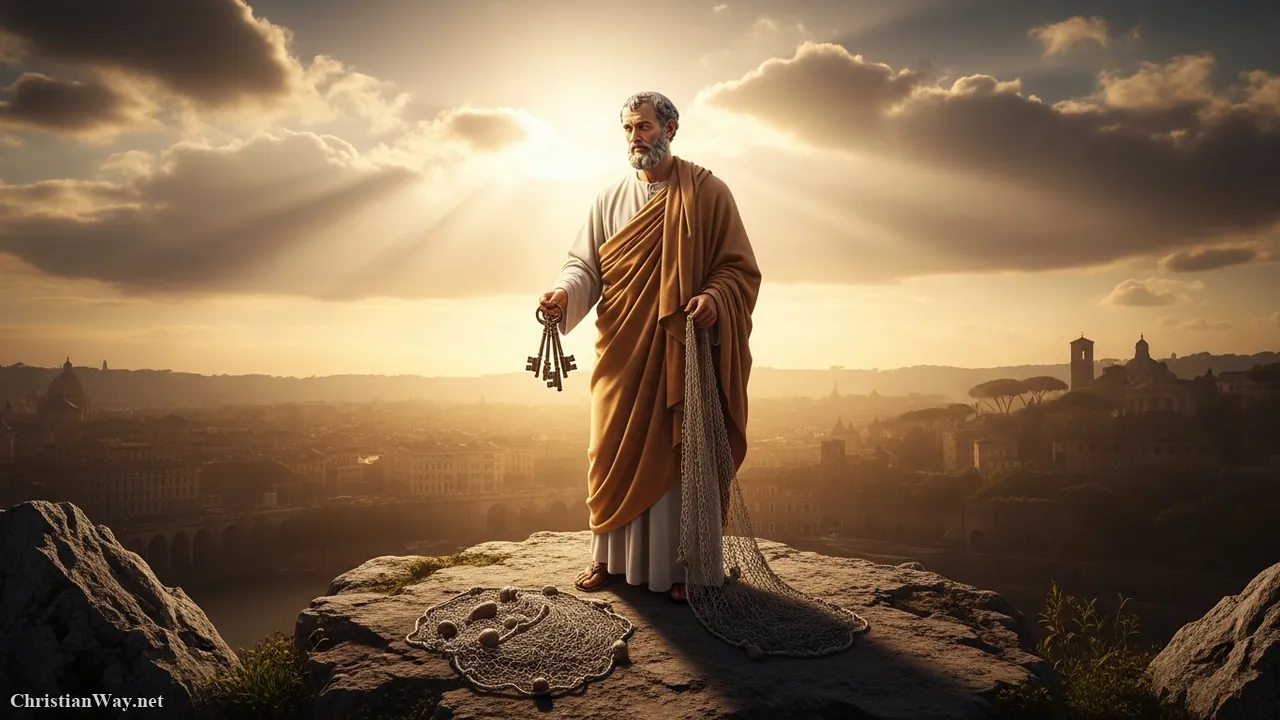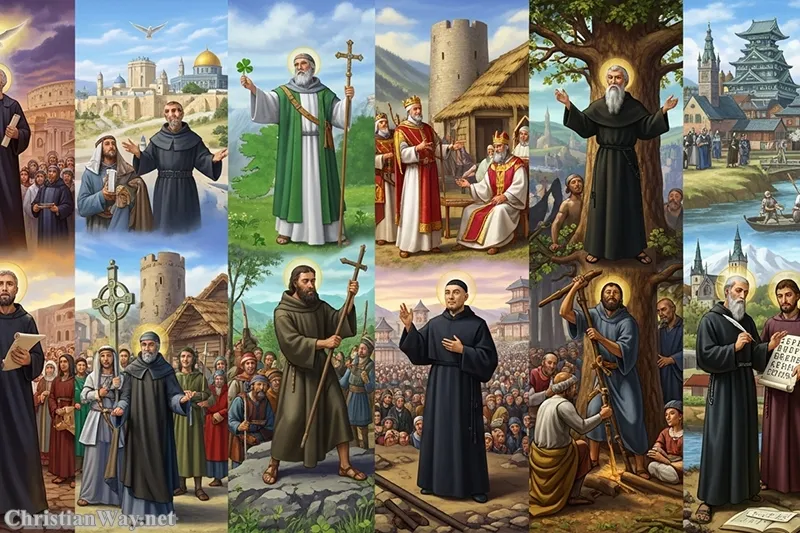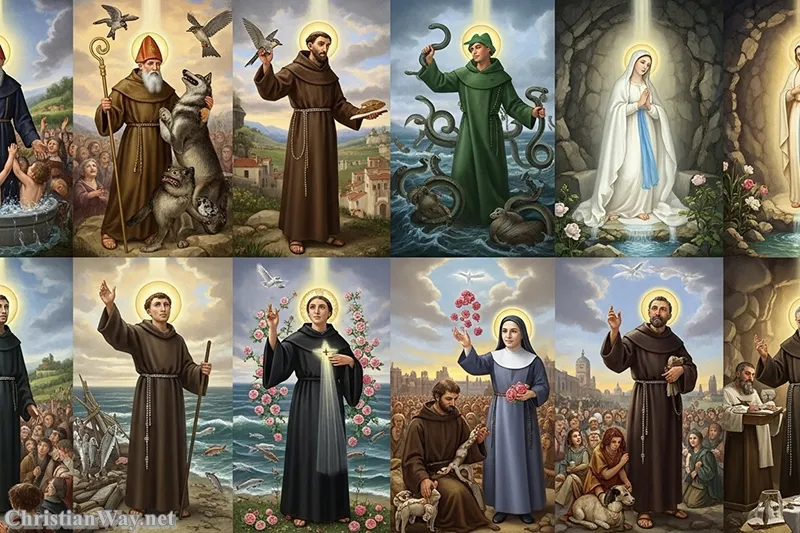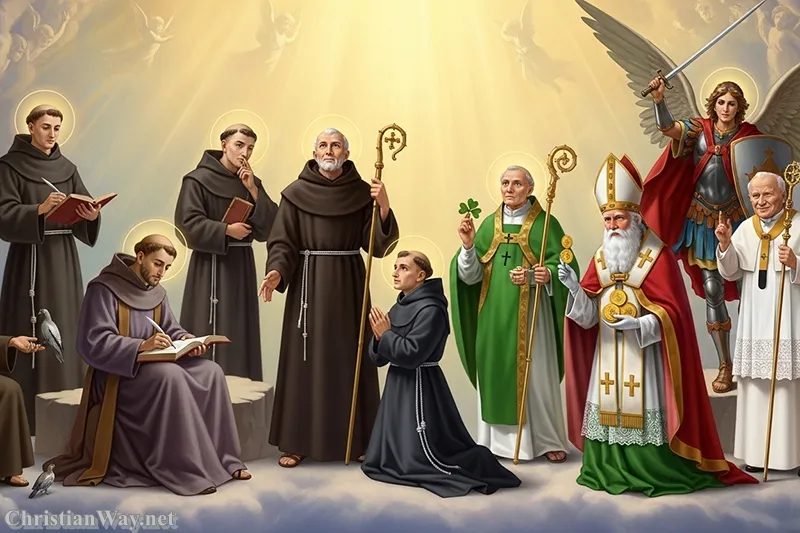Dear friends in Christ,
Every age of human history carries both its wounds and its miracles. Empires rise and fall, knowledge expands, yet the deepest longing of the human heart remains the same — the desire to be united with God. Across twenty centuries of Christian life, countless souls have answered that call, but some shone with such intensity that their lives changed the course of the Church herself. We call them the greatest saints in the history of the Church.
To call a saint “great” is not to measure success as the world does, but to recognize the fullness of divine love reflected in a human life. The word “saint” simply means “holy one,” a person who allowed grace to shape every breath, every word, every act. Each saint is a living Gospel — a page written not in ink, but in sacrifice and mercy.
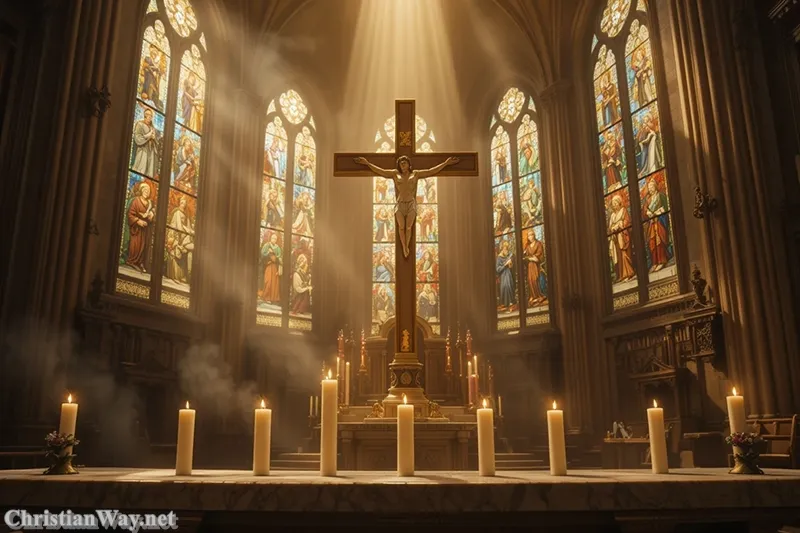
In this reflection, we will journey through ten radiant witnesses who, across centuries, became guiding lights for believers everywhere. These top 10 saints in history are not ranked by fame, miracles, or intellect, but by the depth of their love — and by how their lives became instruments through which Christ renewed His Church.
Let us walk, heart to heart, with these Catholic saints in Church history, who continue to teach us what it means to love, to believe, and to live for God alone.
🌿 The Meaning of “Greatest Saints”
The term “greatest” does not imply superiority, but fullness — the overflowing measure of God’s grace made visible in a person. In every century, God raised up saints to answer the needs of the world: apostles to preach, doctors to teach, mystics to pray, reformers to renew, and martyrs to bear witness.
The greatness of the saints lies in four essential marks:
- Spiritual Depth – Their union with God transformed not only their own hearts but entire generations.
- Doctrinal Light – Many, like Augustine and Aquinas, gave theological foundations to the faith we profess today.
- Historical Impact – They guided the Church through crisis, division, and renewal.
- Universal Witness – Their example transcends cultures, inspiring believers of every age.
Now, let us contemplate ten of these holy souls who shaped the heartbeat of Christianity.
✨ The Top 10 Greatest Saints in the History of the Church
1. Saint Peter — The Apostle of the Rock
According to Church tradition, Saint Peter — once a fisherman of Galilee named Simon — was called personally by Jesus to follow Him. Christ renamed him Kepha (“rock”) and said, “Upon this rock I will build My Church.” (Matthew 16:18)
Peter’s journey is a mirror of every believer’s: he loved passionately, failed painfully, and was redeemed completely. On the night of the Passion, he denied Jesus three times, yet after the Resurrection, the Lord restored him with mercy: “Feed My sheep.”
Tradition holds that Peter became the first bishop of Rome, shepherding the early Christian community and ultimately giving his life in martyrdom under Emperor Nero, crucified upside down — a gesture of humility before his Lord.
Peter’s greatness lies not in his perfection but in his faith renewed by repentance. He shows that even our weakness, surrendered to grace, can become a foundation for God’s work in the world.
2. Saint Paul — Apostle to the Gentiles
If Peter is the rock of unity, Saint Paul is the fire of mission. Once Saul of Tarsus, a zealous persecutor of Christians, he was struck down on the road to Damascus by a blinding light and a voice that said, “I am Jesus, whom you are persecuting.” (Acts 9:5)
That encounter changed the history of faith. Paul became the first great missionary of the Church, traveling thousands of miles to preach Christ among the nations. His letters, inspired by the Spirit, form much of the New Testament and reveal the depths of divine grace: “It is no longer I who live, but Christ who lives in me.” (Galatians 2:20)
Historically attested as one of Christianity’s most influential voices, Paul’s theology — faith through grace, salvation through Christ, unity of the Body — continues to shape Christian thought across traditions.
Through his life, we learn that the greatest sinner can become the greatest saint when touched by the mercy of God.
3. Saint Augustine of Hippo — The Doctor of Grace
Saint Augustine (354–430 AD), Bishop of Hippo in North Africa, is one of the most profound minds in Christian history. His Confessions — the first spiritual autobiography ever written — tells the story of a restless soul who sought truth in every philosophy until he found it in Christ: “You have made us for Yourself, O Lord, and our hearts are restless until they rest in You.”
Augustine’s conversion, guided by the prayers of his mother Saint Monica and the preaching of Saint Ambrose, became a symbol of divine mercy at work in the human heart. As a theologian, he defended the faith against heresies and developed doctrines of grace, sin, and divine love that remain central to both Catholic and Protestant theology.
Declared a Doctor of the Church, Augustine’s thought forms the foundation of Western Christianity. His greatness lies in his honesty — a man who turned his wounds into wisdom, and his intellect into a hymn of love for God.
4. Saint Thomas Aquinas — The Angelic Doctor
Thirteen centuries after Christ, the Church needed a bridge between faith and reason. Saint Thomas Aquinas (1225–1274), a Dominican friar, became that bridge.
Historically, his monumental work Summa Theologiae synthesized Scripture, philosophy, and theology into a vision where reason leads to worship. He taught that truth discovered by the mind and truth revealed by God can never contradict, because both flow from the same Source.
Thomas’ thought continues to guide Catholic theology, especially in ethics and metaphysics. Yet, the man himself was humble — near the end of his life, after a mystical vision during Mass, he laid down his pen saying, “All that I have written seems like straw compared to what I have seen.”
His greatness lies not only in intellect but in awe: he reminds us that wisdom without worship is incomplete.
5. Saint Francis of Assisi — The Poor Man of God
Saint Francis of Assisi (1181–1226) stands among the most beloved Catholic saints in Church history. Born into wealth, he abandoned everything to follow the poor Christ. According to tradition, before a crucifix in the chapel of San Damiano, he heard the Lord say, “Francis, rebuild My Church.”
He obeyed — not by stone and mortar, but by love and simplicity. Francis embraced lepers, sang with the birds, and saw all creation as brother and sister. His joy drew thousands, forming the Franciscan Order, whose witness of poverty and peace renewed the medieval Church.
In his final years, he received the stigmata — the wounds of Christ — a sign of his deep union with the Crucified.
Francis’ greatness is his radical imitation of Jesus. He preached not so much with words as with life itself: “Preach the Gospel always; if necessary, use words.”
6. Saint Teresa of Ávila — The Mystic of the Heart
In the 16th century, Spain was a land of splendour and struggle — and God raised up a woman of both deep contemplation and fierce courage. Saint Teresa of Ávila (1515–1582), a Carmelite nun and reformer, renewed religious life by returning it to prayer, poverty, and love of Christ.
Her writings, The Interior Castle and The Way of Perfection, map the soul’s journey toward God through the stages of prayer. Historically recognized as one of the first female Doctors of the Church, Teresa combined sharp intellect with holy humour and warmth.
Her mystical experiences, often misunderstood, expressed a profound truth: union with God transforms every part of life. Teresa’s greatness lies in her teaching that holiness is not escape from the world, but intimacy with the One who dwells within.
7. Saint Ignatius of Loyola — The Soldier of Christ
Saint Ignatius of Loyola (1491–1556) began as a soldier seeking earthly glory. Wounded in battle, he encountered God during his long recovery, reading the lives of Christ and the saints. He discovered that spiritual victories are greater than any conquest.
He founded the Society of Jesus — the Jesuits — an order dedicated to education, evangelization, and discernment. His Spiritual Exercises, historically attested and still used today, guide souls in hearing God’s voice amid the noise of life.
Ignatius’ legacy shaped global missionary work, especially in Asia and the Americas. His greatness lies in his disciplined vision: finding God in all things, serving wherever the need is greatest, and teaching others to seek His will in freedom.
8. Saint Catherine of Siena — The Voice of Renewal
Born in 1347 in Siena, Italy, Saint Catherine of Siena was a lay member of the Dominican order. Though uneducated, she became a counselor to popes and princes through her letters and holiness.
According to tradition and historical record, she played a role in encouraging Pope Gregory XI to return the papacy from Avignon to Rome — a moment that helped restore unity to the Church. Her writings, The Dialogue and Letters, reveal a soul consumed by love for God and His people.
Declared a Doctor of the Church, Catherine famously wrote, “Be who God meant you to be, and you will set the world on fire.”
Her greatness lies in her fearless charity — a woman whose prayer became prophecy, whose love moved the heart of the Church.
9. Saint Thérèse of Lisieux — The Little Flower of Love
Saint Thérèse of the Child Jesus (1873–1897) lived a hidden life in a Carmelite convent, yet her influence is immeasurable. Known as “The Little Flower,” she offered her life through small acts of love and trust, teaching what she called “the little way.”
Her autobiography, Story of a Soul, became a spiritual classic, revealing the sanctity of simplicity: doing ordinary things with extraordinary love. She wrote, “My vocation is love.”
Saint Thérèse of Lisieux was declared a Doctor of the Church in 1997 by Pope John Paul II, affirming her universal message that holiness is accessible to all.
Her greatness lies in transforming everyday life into prayer — reminding us that to love is to become holy.
10. Saint John Paul II — The Saint of the Modern Age
Born Karol Wojtyła in 1920 in Poland, Saint John Paul II became one of the most visible and beloved popes in history. Having lived through Nazi and Communist oppression, he carried into his papacy (1978–2005) a fearless faith and a deep love for humanity.
Historically, his influence extended beyond the Church — inspiring the fall of communism in Eastern Europe, advancing interfaith dialogue, and proclaiming the dignity of every human life. His Theology of the Body offered a renewed vision of love and human identity rooted in divine design.
John Paul II canonized more saints than any pope before him, reminding the world that holiness is not rare but possible. His greatness lies in his modern witness: a shepherd who preached mercy, forgiveness, and the radiant hope of Christ.
🌸 The Legacy of the Saints — One Body, One Light
When we speak of the greatest saints in the history of the Church, we speak of a single, shining reality: the communion of saints. Though separated by centuries, they share one heart — the heart of Christ.
Peter teaches courage after failure.
Paul teaches conversion and zeal.
Augustine teaches humility of intellect.
Aquinas teaches harmony of truth and love.
Francis teaches simplicity and joy.
Teresa teaches intimacy with God.
Ignatius teaches discernment in action.
Catherine teaches prophetic charity.
Thérèse teaches love in the little things.
John Paul II teaches hope in our time.
Together, they show that holiness is not uniform but symphonic. Each note — apostle, teacher, mystic, missionary — contributes to the same divine melody.
To contemplate these saints is to see the history of the Church as one great story of God’s grace written in human hearts.
🙏 Reflect and Pray
Dear friends, the saints were not born perfect — they were transformed by love. What made them great was not power, but surrender; not genius, but grace. The same grace that sanctified them is offered to us.
Perhaps the truest way to honour them is not merely to admire, but to imitate — in the quiet fidelity of daily life, in the hidden “yes” to God’s will, in acts of mercy no one sees but heaven.
Prayer:
You are the source of every holiness.
Through the witness of Your saints,
ignite within us the desire to love You without reserve.
Teach us to find You in our weakness,
to serve You in our neighbour,
and to walk the little way of love.
May we, one day, join that great communion
where Peter, Paul, Augustine, Francis,
Teresa, Ignatius, Catherine, Thérèse, and John Paul II
praise You forever.
Amen.
— Fr. John Matthew, for Christian Way

